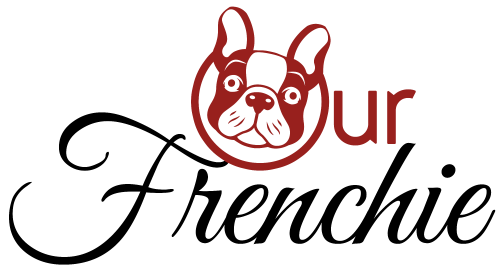About
How Much Should a French Bulldog Eat Daily?
Page Contents
French Bulldogs, with their charming personalities and distinctive bat-like ears, have become one of the most popular dog breeds worldwide. Though, their unique body structure and metabolism require careful attention to their diet. Ensuring your French Bulldog receives the right amount of food daily is crucial for maintaining their health, preventing obesity, and promoting a long, happy life. In this article, we delve into the dietary needs of French Bulldogs, exploring factors such as age, weight, activity level, and health conditions to help you determine the perfect daily feeding routine for your furry companion.
Ideal Caloric Intake for French Bulldogs
Determining the appropriate caloric intake for a French Bulldog is crucial for maintaining their health and preventing obesity. These charming companions typically require a balanced diet tailored to their unique energy needs. On average, a French Bulldog weighing between 16 to 28 pounds might need approximately **25-30 calories per pound** of body weight per day.This can vary based on factors such as age, activity level, and overall health.
For a more personalized approach, consider the following guidelines:
- **Puppies**: Due to their growth and energy requirements, puppies often need more calories.Aim for higher protein and fat content to support their development.
- **Adults**: Maintain a consistent caloric intake that supports their activity level. Adjust as needed if they gain or lose weight.
- **Seniors**: Older French Bulldogs may require fewer calories due to decreased activity levels. focus on nutrient-dense foods to support joint health and vitality.
Always consult with a veterinarian to tailor the diet to your French Bulldog’s specific needs.Monitoring their weight and body condition regularly will help ensure they remain healthy and happy. Adjust their caloric intake as needed to reflect changes in their lifestyle or health status.
Understanding Nutritional Needs by Age
French Bulldogs, like all breeds, have varying nutritional needs depending on their age. It’s crucial to tailor their diet to ensure they receive the right balance of nutrients for optimal health and development. Puppies, adults, and senior French bulldogs each have distinct dietary requirements to support their growth, maintenance, and aging processes.
puppies: During the first year, French Bulldog puppies experience rapid growth and development. They require a diet rich in protein and fat to support their energy levels and muscle development.Look for high-quality puppy food that contains essential nutrients such as DHA for brain development and calcium for strong bones.**Feeding frequency:** Puppies typically need to be fed three to four times a day to maintain energy levels and prevent hypoglycemia.
Adults: Once a French Bulldog reaches adulthood, their caloric needs decrease, but they still require a balanced diet to maintain a healthy weight and muscle mass. Focus on providing a diet that includes lean proteins, healthy fats, and a moderate amount of carbohydrates. **Feeding frequency:** Most adult French Bulldogs do well with two meals a day, which helps to manage their energy levels and reduce the risk of bloating.
Seniors: As French Bulldogs enter their senior years, their metabolism slows down, and they may become less active. It’s critically importent to adjust their diet to prevent weight gain and support joint health. Look for senior-specific dog food that is lower in calories but rich in fiber and joint-supporting nutrients like glucosamine and chondroitin. **Feeding frequency:** Senior dogs may benefit from smaller, more frequent meals to aid digestion and prevent overeating.
- **Protein sources:** Chicken, turkey, fish, and lamb.
- **Healthy fats:** Fish oil,flaxseed oil,and chicken fat.
- **Carbohydrates:** Brown rice,sweet potatoes,and oats.
Balancing Protein, Fats, and Carbs
Ensuring that your French Bulldog receives the right balance of **protein, fats, and carbohydrates** is crucial for their overall health and well-being. Protein is essential for muscle development and repair,and for a breed like the French Bulldog,which is known for its muscular build,a diet rich in high-quality protein sources such as chicken,beef,or fish is recommended. Aim for a diet where protein constitutes about 18-25% of their daily intake.
Fats are equally important as they provide a concentrated source of energy and support skin and coat health. Look for sources like fish oil or flaxseed oil, which are rich in omega-3 fatty acids. Fats should make up roughly 8-12% of their diet. However, be cautious not to overdo it, as French Bulldogs are prone to obesity.
Carbohydrates should complement the energy needs of your dog without overwhelming their diet.Opt for complex carbohydrates such as sweet potatoes, brown rice, or quinoa, which provide sustained energy and fiber. Carbohydrates should account for about 30-40% of their daily intake.Remember, every dog is unique, so it might be necessary to adjust these percentages based on your French Bulldog’s age, activity level, and health status. Always consult with a veterinarian to tailor the diet to your pet’s specific needs.
- **Protein:** 18-25% from sources like chicken, beef, or fish
- **Fats:** 8-12% from sources like fish oil or flaxseed oil
- **Carbohydrates:** 30-40% from sources like sweet potatoes, brown rice, or quinoa
Portion Sizes for Puppies vs. Adults
Determining the right portion sizes for your French Bulldog is crucial to ensure their health and vitality. **Puppies** and **adults** have different nutritional needs, and it’s important to adjust their diet accordingly.
For **puppies**, their rapid growth phase demands a diet rich in calories and nutrients. Typically, a French Bulldog puppy should be fed three to four times a day. The portion size will depend on their age, weight, and activity level, but a general guideline is to provide about 1.5 to 2 cups of high-quality puppy food daily, divided into multiple meals. Look for puppy food that is specifically formulated to support their developmental needs, ensuring it contains the right balance of proteins, fats, and carbohydrates.
As your French Bulldog transitions into adulthood, their caloric needs will decrease. **Adult French Bulldogs** should be fed twice a day, with a total daily portion of approximately 1 to 1.5 cups of high-quality adult dog food. Consider the following factors when determining the exact portion size:
- **Activity level**: More active dogs may require more calories.
- **Weight Management**: Monitor their weight and adjust portions to maintain a healthy weight.
- **Health Conditions**: Consult your vet if your dog has specific dietary needs.
Always ensure that your French Bulldog has access to fresh water and adjust their food intake if you notice any changes in their weight or energy levels. Regular check-ups with your veterinarian can also help tailor their diet to their specific needs.
Adjusting Meals for Activity Levels
When determining the appropriate amount of food for your French Bulldog, it’s crucial to consider their activity level. A more active Frenchie will require additional calories to fuel their daily adventures, while a less active one will need fewer calories to maintain a healthy weight. Here are some guidelines to help you adjust their meals accordingly:
- High Activity Levels: If your french Bulldog enjoys long walks, playtime, or any other vigorous activities, they may need up to 20% more calories than a less active dog. Consider increasing their portion sizes or opting for a higher-calorie dog food formula.
- Moderate activity Levels: For Frenchies with a balanced routine of regular walks and play sessions, sticking to the standard feeding recommendations on the dog food packaging should suffice. Monitor their weight and adjust as needed.
- Low Activity Levels: For those who prefer lounging on the couch or have limited mobility, it’s essential to reduce calorie intake to prevent weight gain. You might need to cut back on treats and slightly reduce meal portions.
always keep an eye on your dog’s body condition and consult with your veterinarian to tailor the diet to your French Bulldog’s specific needs. Remember, each dog is unique, and their dietary requirements can vary based on age, metabolism, and overall health.
recognizing Signs of Overfeeding
Ensuring your French Bulldog maintains a healthy weight is crucial for their overall well-being. Overfeeding can lead to obesity, which is a common issue in this breed due to their compact size and predisposition to weight gain. Here are some signs that might indicate you’re overfeeding your French Bulldog:
- Visible Weight Gain: An obvious sign of overfeeding is noticeable weight gain. If your French Bulldog is looking rounder or if their ribs are difficult to feel under a light layer of fat, it might be time to reassess their diet.
- Decreased Energy Levels: While French Bulldogs are known for their playful nature,a dog that is overfed may display lethargy or a lack of interest in activities they once enjoyed.
- Digestive Issues: Overfeeding can lead to gastrointestinal problems, such as diarrhea or excessive gas. These symptoms can indicate that your French Bulldog’s digestive system is struggling to process the excess food.
- Begging and Scavenging: If your pup is constantly begging for food or scavenging for scraps, it may not necessarily mean they need more food.Overfeeding can disrupt their natural hunger cues, leading them to seek food out of habit rather than necessity.
Monitoring your dog’s body condition and adjusting their food intake accordingly is essential. Regular check-ups with a veterinarian can also help ensure that your French Bulldog’s diet is appropriate for their age, weight, and activity level. Remember,maintaining a balanced diet is key to a happy and healthy life for your furry friend.
Choosing Quality Dog Food Brands
- When selecting dog food for your French Bulldog, prioritize **premium brands** known for their commitment to high-quality ingredients. Brands that emphasize natural components, avoid fillers, and use real meat as the primary ingredient are ideal.
- Look for foods that are **specifically formulated for small breeds**. These formulas often cater to the unique dietary requirements and smaller kibble size suited for French bulldogs.
- Ensure the brand offers a **balanced nutritional profile**. This includes an adequate amount of protein, healthy fats, and essential vitamins and minerals. Omega-3 and omega-6 fatty acids are especially beneficial for maintaining a healthy coat and skin.
Consider brands that undergo **rigorous testing** and have a history of **transparency** in their ingredient sourcing and manufacturing processes.Reading reviews and consulting with veterinarians can provide additional insights into the reliability of a brand.
Lastly, don’t forget to check for any **specific dietary needs or restrictions** your French Bulldog might have, such as food allergies or sensitivities. Some brands offer specialized formulas to cater to these needs, ensuring your pet receives the best possible nutrition without adverse effects.
Consulting with Your Veterinarian
When determining the right amount of food for your French Bulldog, it’s crucial to **consult with your veterinarian**. Every dog is unique, and factors such as age, weight, activity level, and health status can substantially influence dietary needs. A veterinarian can provide personalized recommendations that consider these variables, ensuring your furry friend receives the appropriate nutrition to maintain a healthy weight and lifestyle.
During your consultation, your vet may discuss:
- **Caloric requirements** based on your dog’s specific needs.
- **Nutritional content** of various dog food brands and formulations.
- **Feeding schedules** that align with your dog’s energy levels and daily routine.
- **Adjustments** for any health conditions, such as allergies or digestive issues.
Regular check-ups are also important to monitor your French Bulldog’s health and adjust their diet as needed. Your vet can help identify any changes in weight or health that might necessitate dietary modifications, ensuring your pet remains in optimal condition.
To Wrap It Up
determining the right amount of food for your French Bulldog is crucial for their health and well-being. By considering factors such as age, weight, activity level, and specific dietary needs, you can tailor a feeding plan that ensures your furry friend thrives. Always consult with your veterinarian to make informed decisions and adjust portions as needed. Remember, a well-fed French Bulldog is a happy and healthy companion. Stay attentive to their needs, and enjoy the joy they bring to your life.

